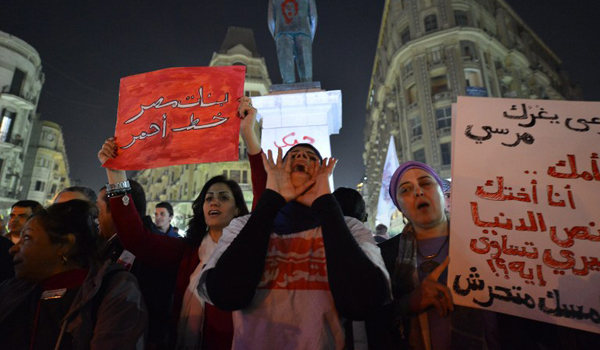At least 2 dead in violent dispersal of Tahrir Square demonstrations
Thousands gathered around iconic square to protest Cairo Criminal Court's dismissal of…
Flash protest in Mohamed Mahmoud Street in downtown Cairo
Timing and location were highly symbolic, as the protest took place two…
Anti-harassment group to form Eid operation rooms
Group says sexual harassment is worse during holidays
South Cairo Court hands down 7 life verdicts for sexual assailants
Five cases were presented to South Cairo Criminal Court; seven out of…
Another year of documented cases of torture and human rights violations
Torture victim survivor calls on activists to “Salvage the [remaining] humanity of…
Trial begins for Tahrir sexual assaults
Accused may face life in prison if convicted
Tahrir mass assault trial scheduled for Wednesday
At least 12 face trial for mass sexual assault during three separate…
Public sexual assault: Why don’t people intervene?
Some bystanders join the attackers instead of intervening, human rights advocates say
12 smuggled artefacts to return from London
Ministry of Antiquities intensifying efforts to prevent smuggling and subsequent sale of…
Union formed to combat mass sexual assault
A group of anti-harassment movements announce they will be present in future…






